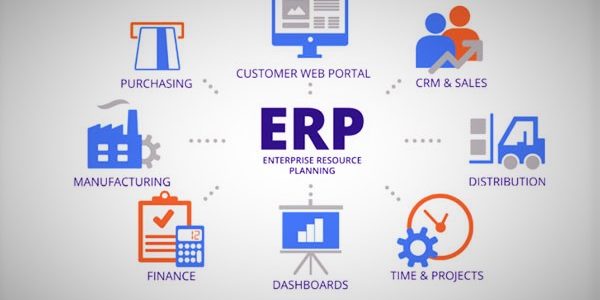
What is the ERP?
ERP (Enterprise Resource Planning) is a business method management package that enables an organization (small and medium business) to handle business and automate many back-office functions related to human resources, services, and technology through the use of a system of integrated applications. ERP is particularly popular among large businesses due to its low installation and maintenance costs. It is, however, increasingly being used by small businesses in the modern age to streamline data from multiple agencies, make information accessible, make informed decisions, and increase productivity. The following are a few of the most important advantages of an ERP system:
1) Merge the flow of data
ERP allows small companies to integrate the flow of knowledge between the organization's various business processes while also incorporating business transactions with the company's financial system in real-time. It aids in the recording of required business transactions in the general ledger and other financial systems. This enables management to when the time comes, take a look at the financial consequences. It assists in the completion of main processes such as sales order entry, product pricing, shipping/delivery, inventory and warehouse, development, procurement, invoicing, financials, and a number of others.
2) Boosts efficiency
All departments' key data and information are accessible on a single platform at the right time and in the right place. As a result, there is no need to contact employees from various departments and/or go through excel sheets to collect disintegrated data.
Vendors, clients, products/materials, routines and manufacturing work processes, bill of material (BOM), and other essential data are all held in the ERP accounting system. This helps to keep work processes stable, saves time, and improves productivity.
3) Greater elasticity
Small businesses benefit from ERP software's agility and flexibility in responding to consumer demands or buyer conditions. Dedicated ERP software allows you the freedom to make the required data management improvements to keep your company running smoothly. Stock updates, revenue figures shifts, and so on.
Instead of deleting data and keying information into a spreadsheet, stock adjustments, improvements in sales statistics, and order cancellations, for example, can be easily maintained in an ERP system.